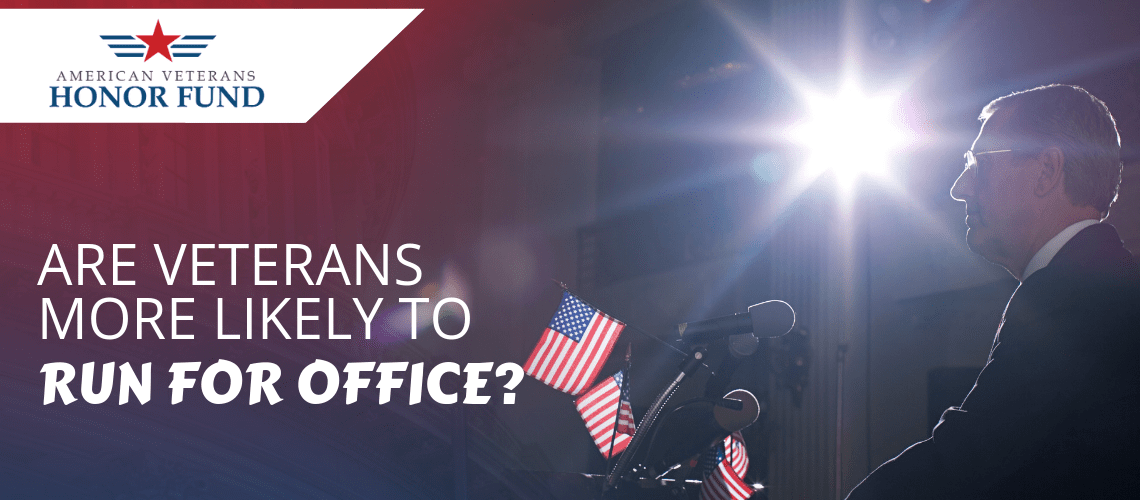While the number of citizens serving in the various branches of the United States military has been on the decline since the 1970s, public perception and trust of the military remains high. Higher, in fact, than many other facets of the government. Perhaps it is the act of service that bears so much weight and, by association, trust. Regardless of the reason, the public places high value on military service members, which can transfer well into political service, but are veterans more likely to run for office?
The number of veterans serving in Congress or in other legislative positions has also seen a decline, but the news is far from all bad.
Veterans in Congress
In the 2018 Congressional class, the 116th of its kind, representation of military experience and post-9/11 veterans saw an uptick. The nineteen incoming freshmen lawmakers make up the highest such number in a decade, and the class also features the highest number of female veterans.
This poses the question: are military veterans more likely to extend their public service with time spent in legislative positions than those in the general public?
A November 2016 study conducted by the American Enterprise Institute, took a more in-depth look at the concept of veterans in Congress.
Of course, there are several factors to consider when comparing service member numbers of decades past and today. For one, the elimination of the draft and the recession of some high-octane issues of divide surrounding the Vietnam and Cold Wars have improved both public perception of the military as well as military relationships within the government. Conversely, though, the lack of draft has caused service member numbers to decline steadily. By relation, the number of military affiliated representatives on the state and national level has also decreased.
However, a survey conducted by the Iraq and Afghanistan Veterans of America (IAVA) in 2016 reveals that nearly 40% of the respondents had at least given thought to running for office. Many veterans start out at state and local legislatures, which is a normal pathway to higher office. In fact, the 2018 midterm election saw 21 races that pitted a veteran against another veteran – an indication that perhaps future elections would yield even more veteran candidates.
Are Veterans More Likely to Run for Office?
So, are these veterans “more likely” to run for office? That’s hard to quantify. However, many veterans feel compelled to extend their public service by running. Some refer to this at their second service.
Military voices are needed in lawmaking as several initiatives remain near and dear to both active duty and retired veterans. Additionally, military experience lends itself well to representing (and, by association, defending) initiatives and bills that contribute to homeland security.
In the 1970s, 75% of Congress was made up of veterans. Now, that number is much lower, but no less important. Veterans still feel a sense of duty and commitment to service of their country and see moving on to political office as a logical next step. Perhaps it is this commitment to service that motivates them to seek office, to make a concerted effort at making a difference.
Particularly for veterans affairs and services, post-deployment or post-service, it is important to have proper representation. Providing veterans with a voice is a call to duty that many military Congress members hear and perhaps provides a source of personal motivation to run that members of the general population cannot understand.
Learn more about American Veterans Honor Fund.

